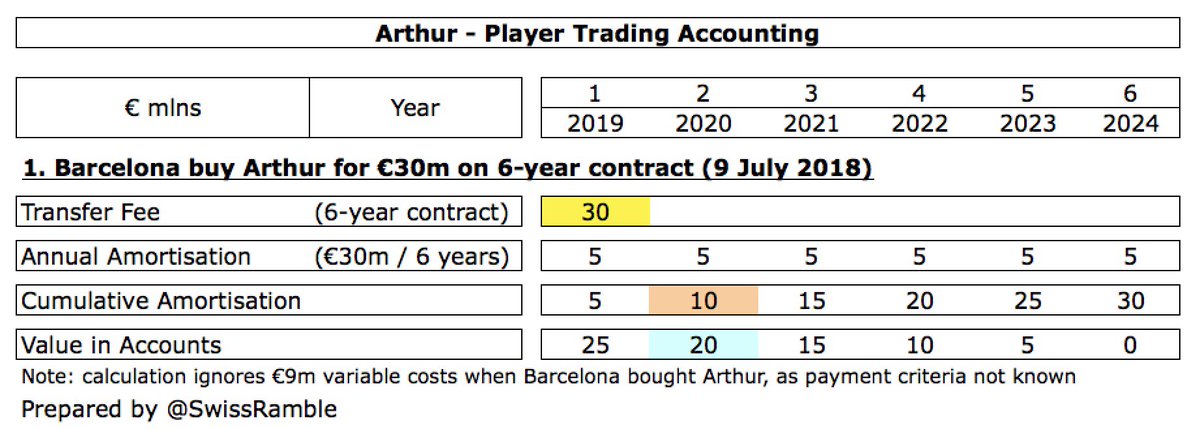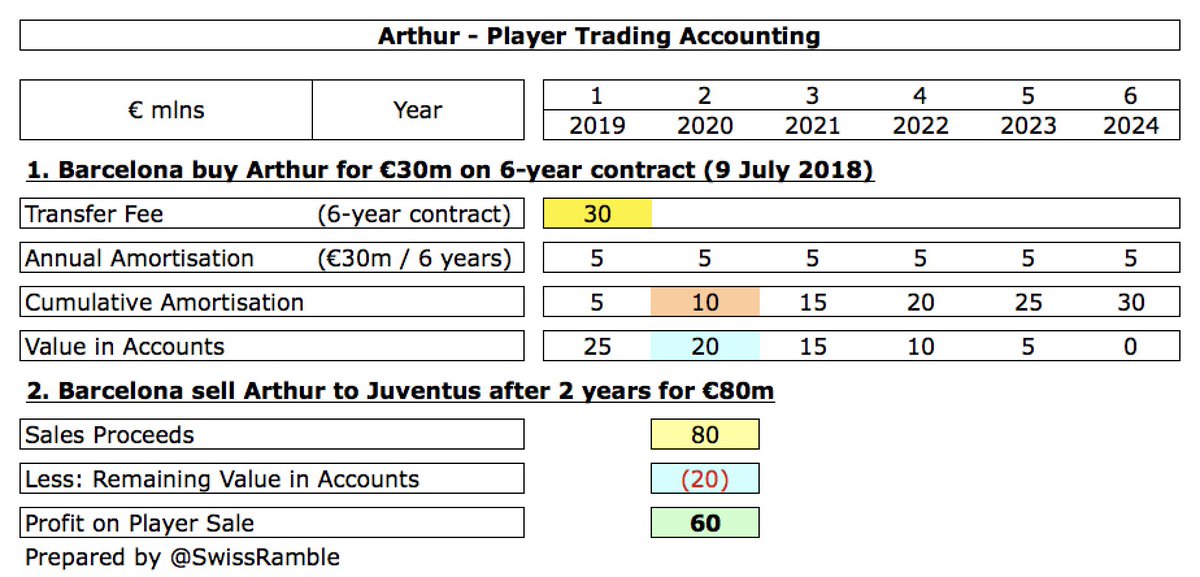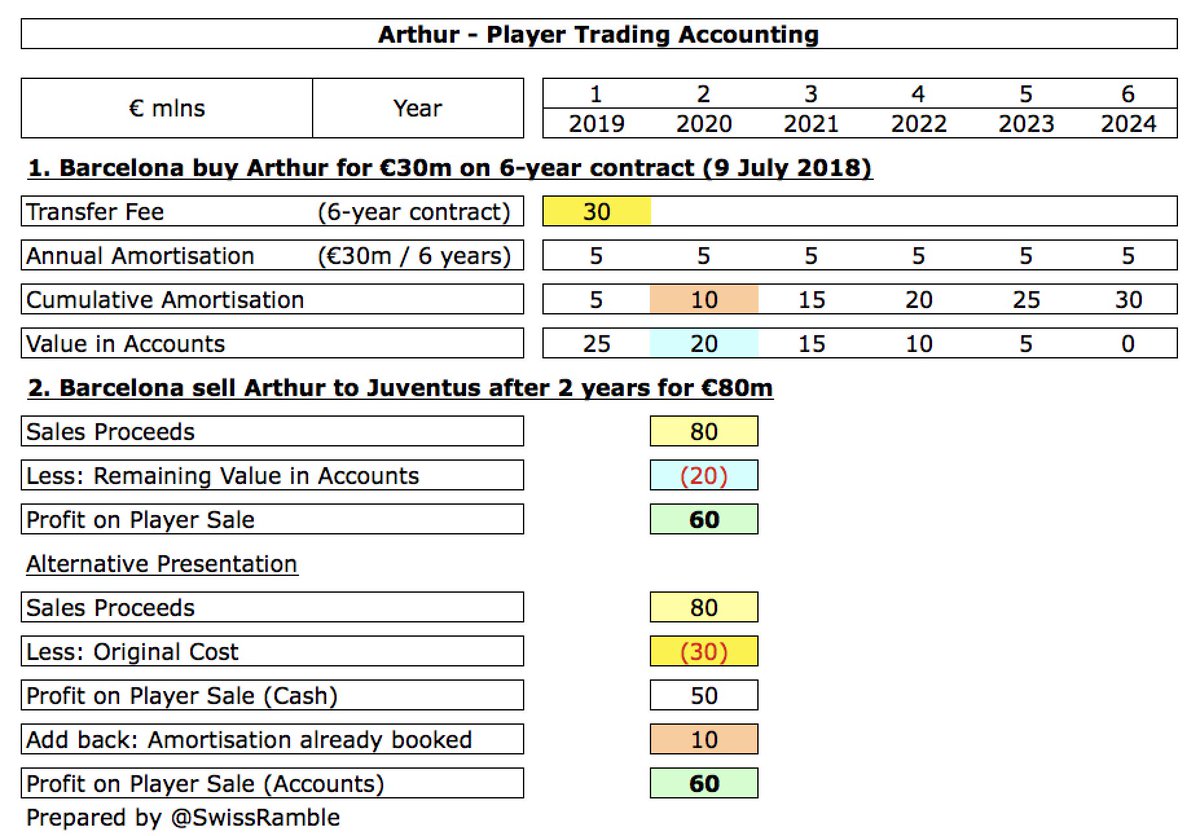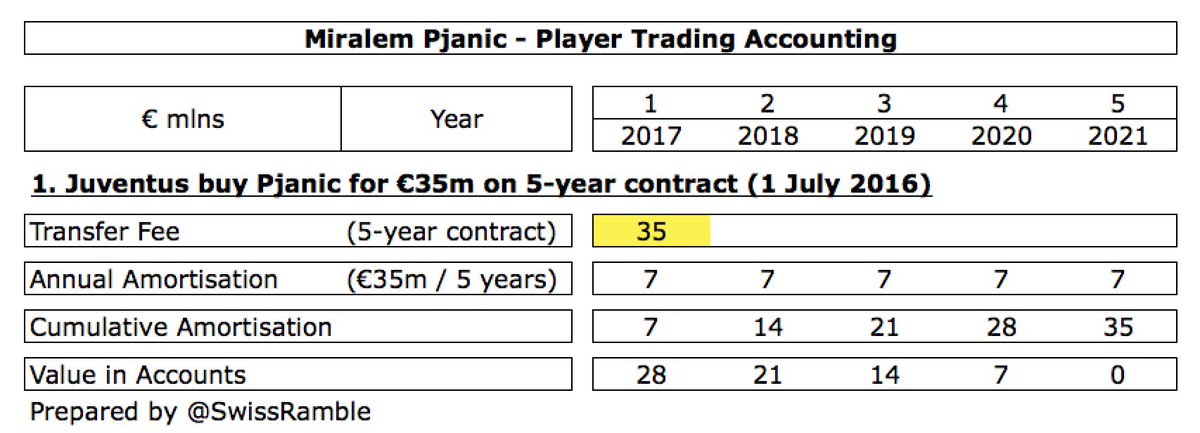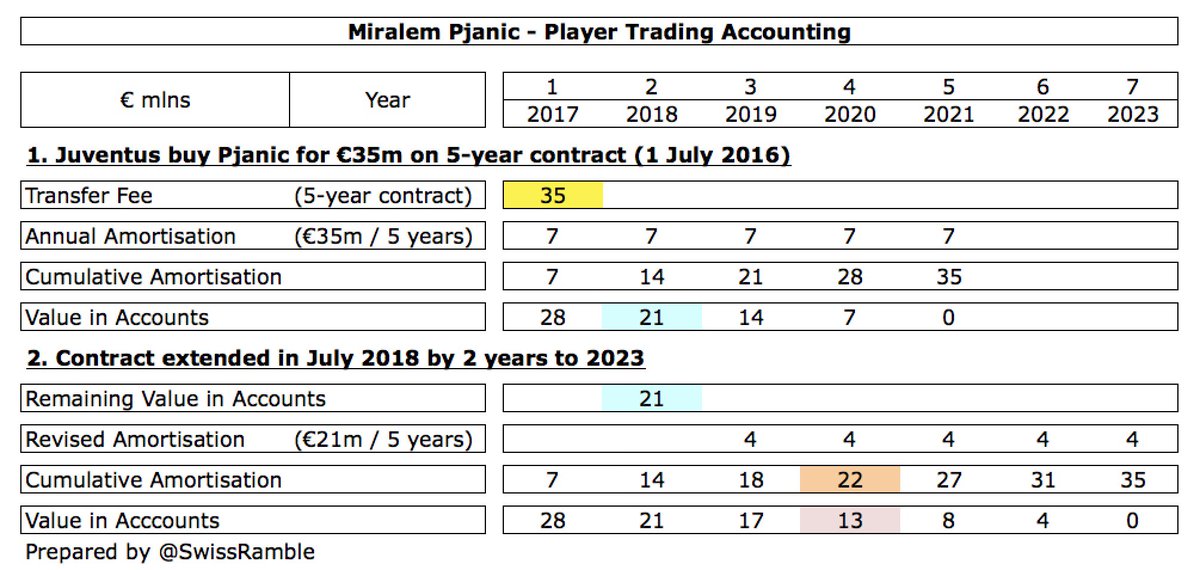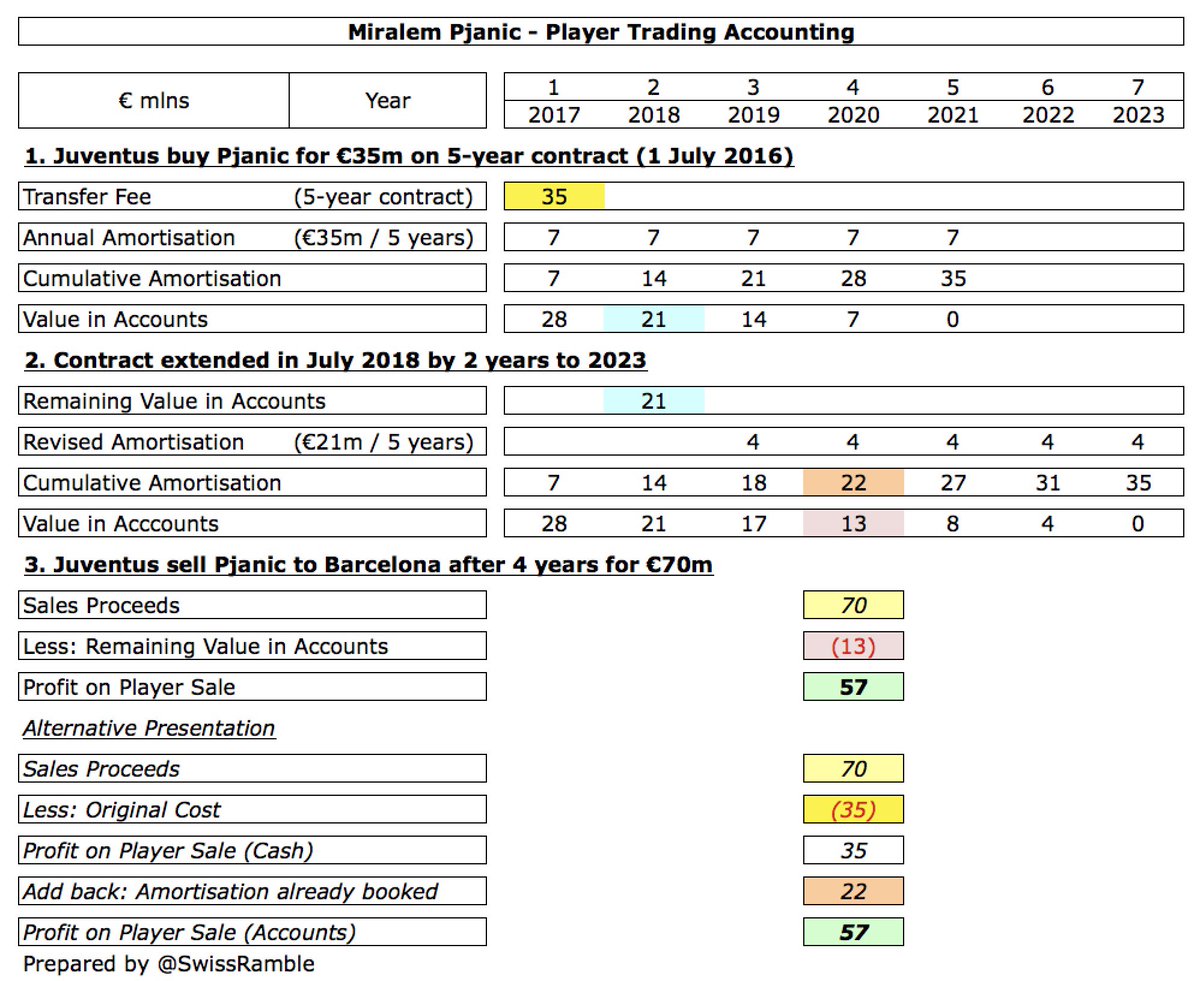Reports that #FCBarcelona are selling 23-year-old Brazilian midfielder Arthur to #Juventus for €80m, while 30-year-old Bosnian playmaker Miralem Pjanic will move the other way for €70m, have left supporters of both clubs somewhat perplexed.
From a financial perspective, it would appear that #Juventus are effectively paying #FCBarcelona €10m to exchange Pjanic for the younger Arthur, but the accounting treatment means that both clubs will report around €60m profit from this transaction. Let’s explain how.
At this stage we have to get a bit technical to understand how football clubs account for player trading. The fundamental point is that when a player is purchased costs are spread over a few years, but any profit made from selling players is immediately booked to the accounts.
Basically, football clubs consider players to be assets, so they do not fully expense transfer fees in the year a player is purchased, but instead write-off the cost evenly over the length of the player’s contract via player amortisation.
As Arthur was purchased by #FCBarcelona in July 2018 for €30m on a 6-year contract, the annual amortisation was €5m, i.e. €30m divided by 6 years. This means that his book value reduces by €5m a year, so after two years his value in the accounts was €20m.
If Arthur is indeed sold for €80m, then #FCBarcelona profit on player sales from an accounting perspective would be €60m, i.e. sales proceeds of €80m less remaining book value of €20m. Note: we are ignoring €9m of variable transfer fees, as payment criteria not known.
Another way of looking at this is that the cash profit on the Arthur sale would be €50m (sales proceeds of €80m less €30m purchase price), but we then add back €10m of player amortisation that has already been booked to the accounts to give the €60m accounting profit.
Pjanic was purchased by #Juventus in July 2016 for €35m on a 5-year contract, so the annual amortisation was €7m, i.e. €35m divided by 5 years. This means that his book value reduces by €7m a year, so after two years his value in the accounts was €21m.
In July 2018 #Juventus extended Pjanic’s contract by two years to 2023, which meant the remaining €21m value in the accounts was then amortised over 5-year term of the new contract, reducing annual amortisation to €4.2m. This means that his value in the accounts is now €13m.
If Pjanic is sold for €70m, then #Juventus profit on player sales from an accounting perspective would be €57m, i.e. sales proceeds of €70m less remaining book value of €13m.
In this way, both #FCBarcelona and #Juventus will have both boosted their profits by around €60m, despite the net difference between the transfers being only €10m. Move along, nothing to see here, certainly not a device to improve the bottom line.
Given the relative ages of the players, the “exchange” might also raise questions about the state of #FCBarcelona’s finances, as €10m would appear to be a fairly low net gain for the Catalans.
Of course, this deal has yet to be done, but the fancy footwork on the accounting side gives a possible explanation as to why both clubs seem keen.

 Read on Twitter
Read on Twitter